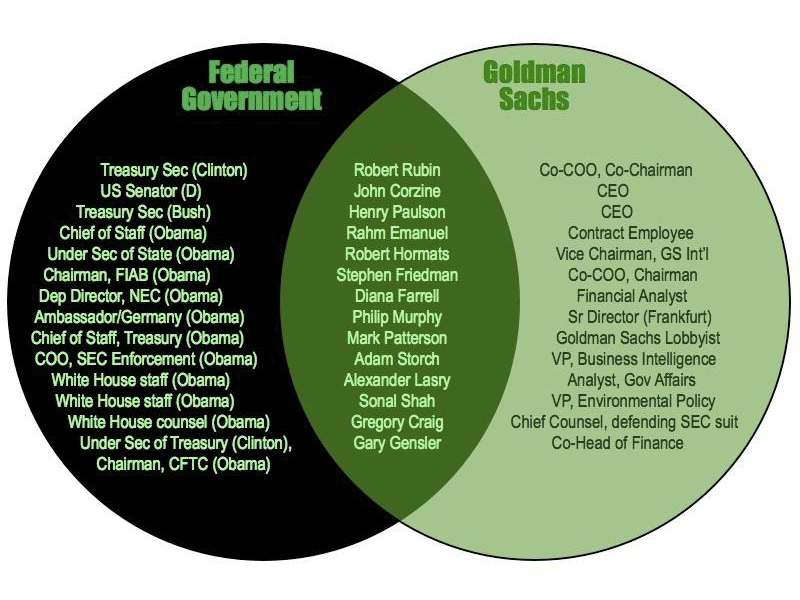Some of you might be wondering about some of the terms you hear when you watch stuff related to the crash. Since I managed to explain the Syrian thing quite well, I'll try to explain economics.
Pro tip: look at my avatar from time to time, while reading this. It's makes things funnier.
A derivative is a bet. I think the price of oil will be higher 6 months from now. I haz money. I wanna make more money. I buy the OPTION (not obligation!) of buying X quantity of oil 6 months from now at today's price. So, I profit, if the initial investment (me buying the option of buying) + the cost of X quantity of oil when I bought the derivative is less than the cost of oil 6 months from when I bought it. Evidently, if I do this with a lot of shit and my bets are wrong, I lose and I'm out of business, unless I get bailed out by the state (which used force to steal from its citizens -aka tax-).
This can be done with everything that has value (government bonds, loans, interest rates, etc.). You can even bet on an index (like Dow Jones). It is called "derivative", because it doesn't have value per se. It derives its value from other value. There are a shitload of types of derivatives and similar shit ("futures" for example are not technically derivative, but they are pretty much the same). They have been around since the 18 century (rice brokers -yes, that is a term- in Japan were betting on the price of rice).
You heard plenty of times that a few corporations owned the world. Most morons that said that gave dumb examples such as Coke, Walmart, McDonald's. That's like giving San Marino as an example of a country with a powerful army. You heard that corporations go all in and bet more than they have.
Here's what "a few corporations own the world" and "they bet more than they have" mean. The world's 9 largest banks have $228 720 000 000 000 in derivatives exposure. Sounds like a lot, no? $71 830 000 000 000 was the world's GDP in 2012. The 9 largest banks have an exposure of more than thrice the world's value. $70 151 000 000 000 is just JP Morgan's exposure. I prefer adding the 12 zeros instead of saying "trillion". It makes a bigger impact. Hard to imagine those numbers, no? Here you go:

Those massive blocks on the flanks are towers made out of $100 bills. Each block has one trillion dollars.
See that truck in front of the White House? It has 2 billion.
That image just represents Morgan's exposure. Triple it and you'll almost get just the derivatives expose of just the 9 biggest banks (again: other entities also have derivatives and that is not the only exposure those 9 have).
Now, betting might not sound so bad. It's an important part of economics. You can even go as far as considering prices to be betting (you have a shop that only sells Coke, you sell it at 1$/bottle and you're betting that enough people will buy it so that you would make a profit).
But, you can also bet against the market. Only the big players are able to do it, because you need a lot of money to do it. So, the ones that control the market are the only ones able to bet against the market and profit. One can bet against the market using various methods. This is a small list:
- Put options: you get the right to sell shares. You profit from declines in securities price. If you buy more put options, you put pressure on the security. Wanna guess what that will do to the price? Securities are tradable assets. Examples of securities: derivatives (missed them?), bonds, stock, money, etc. Btw, yes, money has a price. 1$ today is not the same as 1$ in 6 months. Wanna bet? ^^- Liquidation arbitrage: it's the thing you see in movies with big bad capitalist pigs. You profit from liquidating a company. It's usually done by buying it and selling its parts (including the land and shit)
- Shorting equities
- Shorting exchange traded funds
- Derivatives (you probably love them by now)
The last 3 pretty much work in the same way. It's basically called: short selling (I am simplifying things here). You all know what long selling is (even if you never heard the term): you buy a stock, you expect it to do well, it does well, you sell it at a higher price, you profit. Short selling is when you sell a stock you don't own. Mindfucked? ^^ You're buying a security that is not owned by the seller, but that the seller promised to give you. Mindfucked even more? ^^ Someone (usually your broker, using his inventory) loans you stock. The stock gets sold (you don't sell it; it just gets sold). The money goes to your account. Eventually you have to "close" (you buy the same number of shares -it's called: "covering"- and you return them to your broker). If the price is less than the previous one (the one when your broker lent it), you profit. So: the price is 5$, you short it to 4$ and you make 20% profit.
You won against your broker. He basically represents the market. You can also use other brokerage firms, other clients of the brokerage firm your broker works for
or even the company, directly.
Try to imagine what short selling a currency can do. It can pretty much do this:
en.wikipedia.org/wiki/Black_WednesdayOn Monday, October 26, 1992, The Times quoted Soros as saying: "Our total position by Black Wednesday had to be worth almost $10 billion. We planned to sell more than that. In fact, when Norman Lamont said just before the devaluation that he would borrow nearly $15 billion to defend sterling, we were amused because that was about how much we wanted to sell."
Soros is absolute shit compared to JP Morgan, but he would have been able to outbid the UK government. Norman Lemont was Chancellor of the Exchequer (bloke responsible for economic and financial matters). Soros used all the money he had in his Quantum Fund + some money from other funds in that short. He could have made it worse, but he was merciful. One rich bloke can cause a crash in a few minutes.
A cool way of making profit is this: you know that Pepsi is going to beat Coke (not in selling, in increase in stock prices, %-wise). You bet a million on Pepsi winning and a million on Coke losing and you pretty much make twice the profit. It's better than betting 2 million either way (basically, you would be fucking up the stocks too much; your goal is to fuck the other players, so you wouldn't want to buy too much stock, because you would decrease your profit). The best thing about it is that it is bulletproof against crashes. If the soda industry has a crash, you're going to lose nothing (almost). Sure, Pepsi is losing your money, but Coke is winning it back. Thus, it's less risking that longing with 2 million (in case of a crash) and shorting with 2 million (in case something happens and Coke wins).
It's called "long" when you expect an increase in price, it's called "short" when you expect a decrease in price.
Betting against the market is incredibly risky, unless you actually control the market. JP Morgan is able, for example, to manipulate the prices of the copper (controls almost 90% of the market), silver and aluminium markets. How many things do you own that are made from one of those materials? Remember when I said Coke is a bad example of a big company? They don't even decide how much a can of Coke costs.
www.nytimes.com/2013/07/27/opinion/goldman-sachss-aluminum-pile.html?_r=0The Daily Show had a good piece on something similar.
Anyway, I was speaking about bailouts earlier. Here is a list:
theeconomiccollapseblog.com/archives/have-you-heard-about-the-16-trillion-dollar-bailout-the-federal-reserve-handed-to-the-too-big-to-fail-banksAlso, here is a nice pic, made by a Harvard law professor (Larry Lessig):

But, sure, Romney was the one that loved corporations and Obama was the good guy.
People actually watched the presidential debates thinking there is a significant difference between the two. People actually argued against Romney with passion.
Btw, you know the sound bite "I'm not concerned about the poor" (which sounds as if he is evil incarnate)? The full phrase was: "I'm not concerned about the poor, because they have a very ample safety net." Btw, Obama's bail outs almost ruined those nets.

Oh, btw, most derivatives are automatically traded in microseconds by computers which use algorithms. Cool, innit?
@2 big 2 fail: you cut them into smaller pieces, let others buy some and let the rest die. Ofc it will suck, but it will be better on the long run. This was just a short term solution, designed to let corporations profit a lot. The well being of the citizens was not considered.
Paul Krugman: "Nobody who has read a business magazine in the last few years can be unaware that these days there really are investors who not only move money in anticipation of a currency crisis, but actually do their best to trigger that crisis for fun and profit". ^^
I simplified things in order to not make it too complicated, long and boring. I used "betting" as an umbrella term. I did not use it to mean "financial betting", which is just a small part of the betting that I was talking about.
en.wikipedia.org/wiki/Financial_bettingConspiracy theorist are just people that don't understand economics. It's all out in the open.
I'm still better than CNN, baby.
